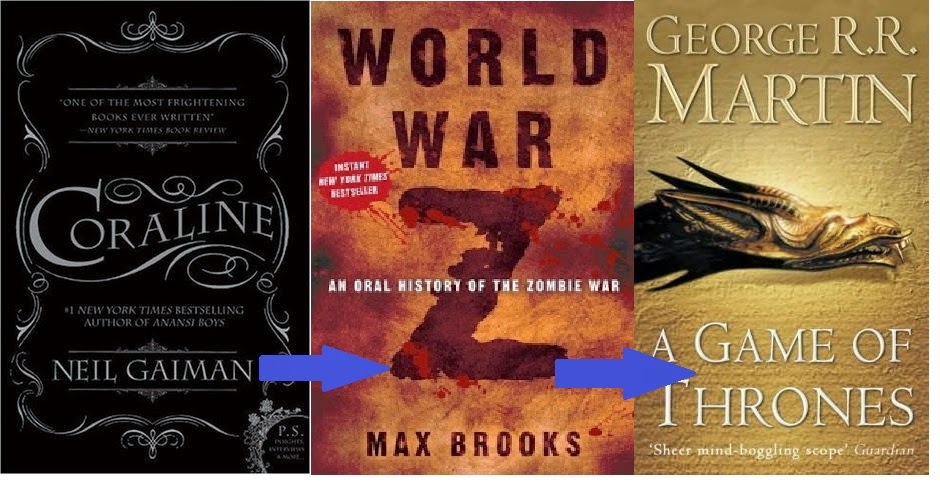So here we go!
Gone Girl was fine. I found myself quite wrapped up in the story as I read it, but the more time that passes the less I think it was really anything substantial. Be that as it may, it's memorable for many things. The relationship between the married couple, the dark twists that abound the narrative and the absolutely horrendous people that populate the cast.
Horrendous people? Surely you're talking about the cast of Jonathan Franzen's The Corrections! I had a brilliant time reading this book with a group of bloggers last year, but ye gods were the people awful. Awful yes, but at least they weren't alone in their awfulness. The family that destroys-your-will-for-life together, stays together.
A better, although no less sinister, family are the sisters (and their poor uncle) in Shirley Jackson's novella We Have Always Lived In The Castle. For two young women they've been through a lot and are well acquainted with the flurry of emotions that follow the death of a family member(s).
A few years ago Coraline was turned into a cracking good film, and after a couple of years of production delays and arguments between lead actors and directors, World War Z finally made it to the big screen to generally good reviews. The film had nothing on the book though, which managed to tell a terrifying and emotionally charged story about a world succumbing to the onslaught of undead villains. Perhaps the defining feature was the collection of short eye witness accounts that make up the novel. It's these differing perspectives, those of politicians and generals and filmmakers and doctors, that adds a level of humanity to the story that's often absent in zombie and end of world stories.
And finally, also utilising the multiple narrator format is George R. R. Martin's A Game of Thrones. Switching between different lead characters found in various parts of warring Westeros, this series manages to tell dozens of different stories within the larger patchwork narrative.


